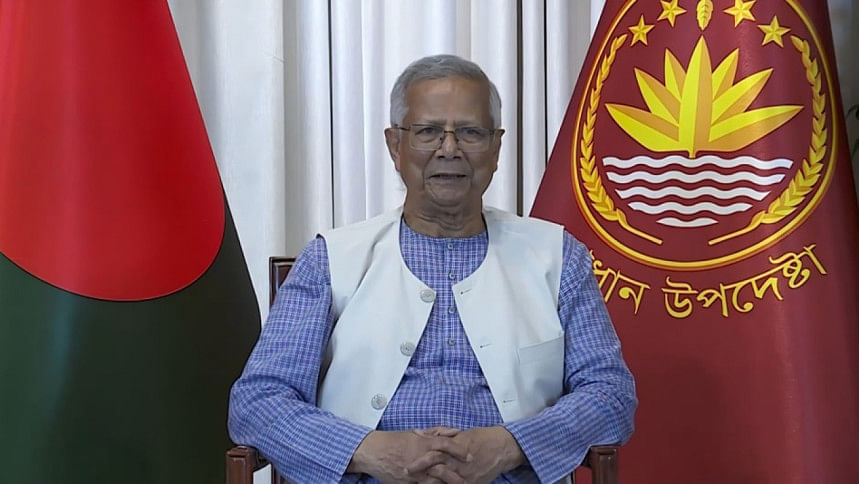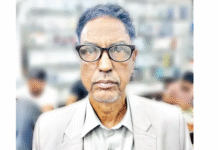
Last update on: Wed Jun 11, 2025 08:00 AM

The chief adviser has announced the timing of the next parliamentary election—the country will go to the polls, ceteris paribus, in the first half of April 2026. One would not be wrong to suggest that his hands were forced by the BNP demand to hold the election by December this year. Predictably, the announcement has not satisfied the BNP, who claim that they reflect the majority public opinion regarding the polls, and that the nation has been disappointed by the election schedule announced by the CA on the eve of Eid-ul-Azha.
We don’t know whether the party has conducted a countrywide public opinion poll on which they posit their assertion. Going by the comments and observations in various media platforms, there are grounds to take issue with BNP’s claims. In fact, one might go so far as to suggest that a large segment of the population is disappointed by the election schedule. And for good reasons.
Let me make it clear before proceeding further that there is no alternative to a democratically elected government. Needless to say, any government that is entrusted with the task of running the affairs of the state must have the confidence of the public. And the confidence is expressed through a free, fair and participatory election, which the last three elections under Sheikh Hasina did not allow. But there is yet another means by which the public entrusts a group of people to conduct the affairs of the state, for a period of time, with the expectations that the aims, the hopes and aspirations, the shortcomings of democracy, the trampling of people’s rights that led to the extraordinary manner of regime change—in our case an illegal regime—are fulfilled and the causal factors are purged forever. Such an arrangement certainly defies the narrative of political science literature, but nevertheless is lent credibility by the demonstration of public support, which may not have come through the ballot boxes, but through a public upheaval, as the July uprising of 2024 was. There can be nothing more powerful a popular verdict than what was pronounced on August 5, 2024.
We must not forget that the July uprising was a unique phenomenon, hardly witnessed anywhere else in the recent past. We must also not forget that the people have invested the interim government with the power to bring changes—albeit not through the ballot box, but perhaps more empowering and overwhelming than the ballot box—as deemed necessary to ensure that we don’t suffer the pains we did in the 15-plus years of the previous regime. But of course, the changes must be done through consultations with other political parties who lost their say during this long one and a half decades.
To the interim government’s credit, reform has been the top on its list of things to do. In spite of the consistent efforts by an ousted prime minister sitting in Delhi and her supporters within the country to create as much trouble as possible internally, the interim government has tried to remain consistent in its goal. It has so far been able to weather the persistent media onslaught from across the border which has made Chief Adviser Prof Muhammad Yunus the main target.
Why has the election schedule been disappointing to most people?
The simple answer is most people are worried about our future. Worried that the objective of the Monsoon Revolution may perhaps not be fulfilled. Worried because the pious hope for a systemic change that would prevent the repetition of the past regime’s misdeeds may not come about. People don’t want to see the old wine in an old bottle—politics being hogged by time-tested politicians who have failed people’s expectations time and again. Each successive election brought one of the two political parties that outdid the previous regime in maladministration, in financial mismanagement, in crony capitalism, and what have you. Why do you think the Awami League could cling to power despite its blatant misdeeds and violation of human rights, on which the UN has also given its verdict? Other than the three farcical elections, one reason was that the binary alternative, in public estimation, was no better an option.
In short, the call is: Reform, then elect.
Admittedly, not much reform has taken place, particularly political reform. While we are glad to see that a new party has emerged in the political arena, led by young bloods, carrying no baggage of the past, owing obligation to the nation and with the promise of replacing old politics and ossified politicians who have outlived their potentials, the important political reforms have regrettably not been thrashed out, consensus reached and made ready for implementation. The call is for essential reforms.
And what do I want as a common voter? I am confident that I speak more than for myself only.
I don’t want to be coerced to vote for any particular party. I want money and muscle power to become irrelevant in politics. I want political leadership to emerge through a democratic process within the political party. I want that by the time that the next election is held, the law of primogeniture followed by our two major political parties, for so long, becomes history. That the sanitised system ensures a balance of power and separation of the branches of the government, providing guard rails of democracy that would prevent descent to authoritarian rule and foil the prospect of a single individual assuming superlative power. That the security and law enforcement agencies don’t become appendages of the ruling party. That there should be a stonewall between the party in power and the administration.
A tall order, perhaps, but very essential.
We don’t want old wine in a new bottle; we want both new wine and a new bottle.
Brig Gen Shahedul Anam Khan, ndc, psc (retd) is a former associate editor of The Daily Star.
Views expressed in this article are the author’s own.









